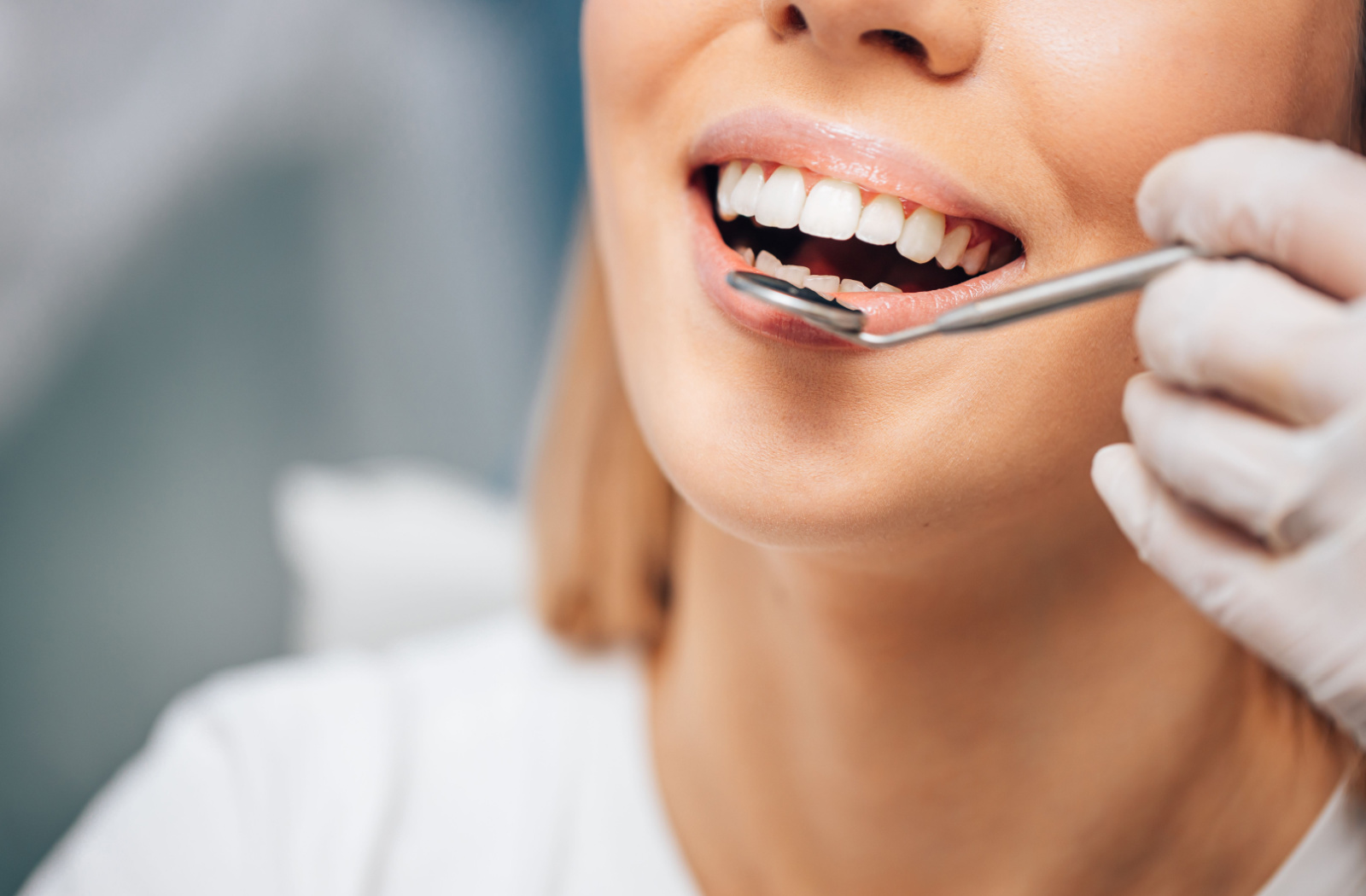Gingivitis and periodontitis are both related to gum disease but represent different stages of the condition.
Gingivitis is the early and milder form of gum disease. It can be easier to treat with an improved oral healthcare routine and regular visits to your dentist. But, treatment can become more difficult once it progresses past gingivitis.
Prompt treatment while the condition is still in the gingivitis stages is crucial. If gum disease is allowed to progress without treatment, you can experience receding and painful gums, infection, and tooth loss. Like many conditions, prevention is easier than treatment.
What Is Gingivitis?
Gingivitis is a common early form of gum disease affecting millions of people worldwide. It involves inflammation of the gums (gingiva) and can cause redness, swelling, and bleeding.
Although gingivitis is common, it’s preventable and treatable with good oral hygiene practices.
Causes of Gingivitis
Gingivitis is primarily caused by the buildup of plaque on teeth. Plaque is a sticky, colorless film of bacteria that constantly forms on your teeth. When plaque isn’t effectively removed through brushing and flossing, it can irritate the gums, leading to inflammation.
Preventing & Treating Gingivitis
The best way to prevent gingivitis is by practicing effective oral hygiene.
Brush your teeth twice a day for at least 2 minutes, and floss daily. Regular dental checkups and cleanings remove tartar and can help prevent gum disease.
Your dentist may recommend a professional deep cleaning or scaling and root planing if you have gingivitis. Scaling and root planing involves removing tartar and smoothing the rough spots on the tooth root to help the gums reattach to the teeth. Your dentist may also prescribe an antibiotic rinse to kill bacteria and help prevent further infection.
What Is Periodontitis?
Periodontitis is an advanced stage of gum disease characterized by inflammation and infection that affects the tissues and bone supporting the teeth. It develops when gingivitis is left untreated.
Causes of Periodontitis
Periodontitis indeed develops when bacteria within plaque proliferate and accumulate beneath the gum line. When plaque isn’t effectively removed, it hardens into tartar (also called calculus).
The pockets between the gums and teeth can trap more bacteria and debris, exacerbating the infection and inflammation. This continuous cycle of bacterial multiplication and immune response can lead to the destruction of the gums, connective ligaments, and supporting bone structures that hold the teeth in place, leading to loose teeth and eventual tooth loss if not treated.
How Is Periodontitis Treated?
Periodontitis treatments vary depending on the severity of the disease. In mild cases, your dentist or hygienist may recommend scaling and root planing to remove plaque and tartar from the tooth’s surface and beneath the gums.
In severe cases, your dentist may recommend surgical treatment or antibiotics, including flap surgery to remove the infected tissue, bone grafting to replace missing bone, and soft tissue grafting to cover exposed roots.
How to Prevent Periodontitis?
Prevention is always better than treatment when it comes to periodontitis. Here are some tips to help keep your gums healthy:
- Brush your teeth twice a day with a fluoride toothpaste
- Floss daily—preferably after every meal—to remove plaque and other debris between your teeth
- Rinse with mouthwash to kill bacteria and freshen your breath
- Visit the dentist regularly for cleanings and checkups
- Eat a balanced diet rich in vitamins and minerals
- Stop smoking or using tobacco products

Discuss Your Symptoms with Your Dentist
Whether you’ve noticed some tenderness and swelling from gingivitis or experiencing the beginning stages of periodontitis, it’s important to receive treatment as soon as possible. Contact us at one of our Arch King West Dental locations today. Our experienced dental teams can examine your mouth, provide professional cleaning, and recommend an effective treatment to protect your mouth and gum health.


